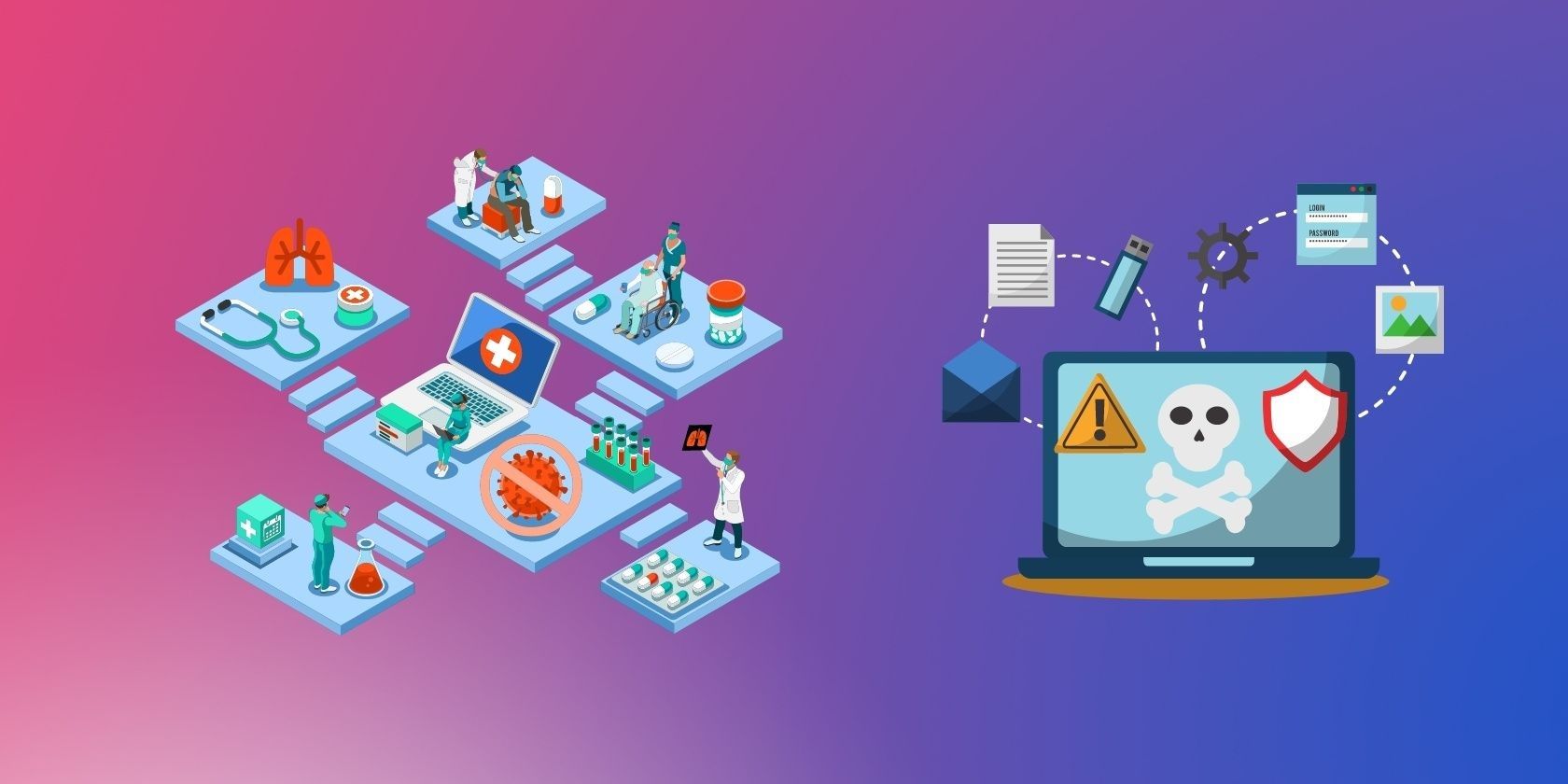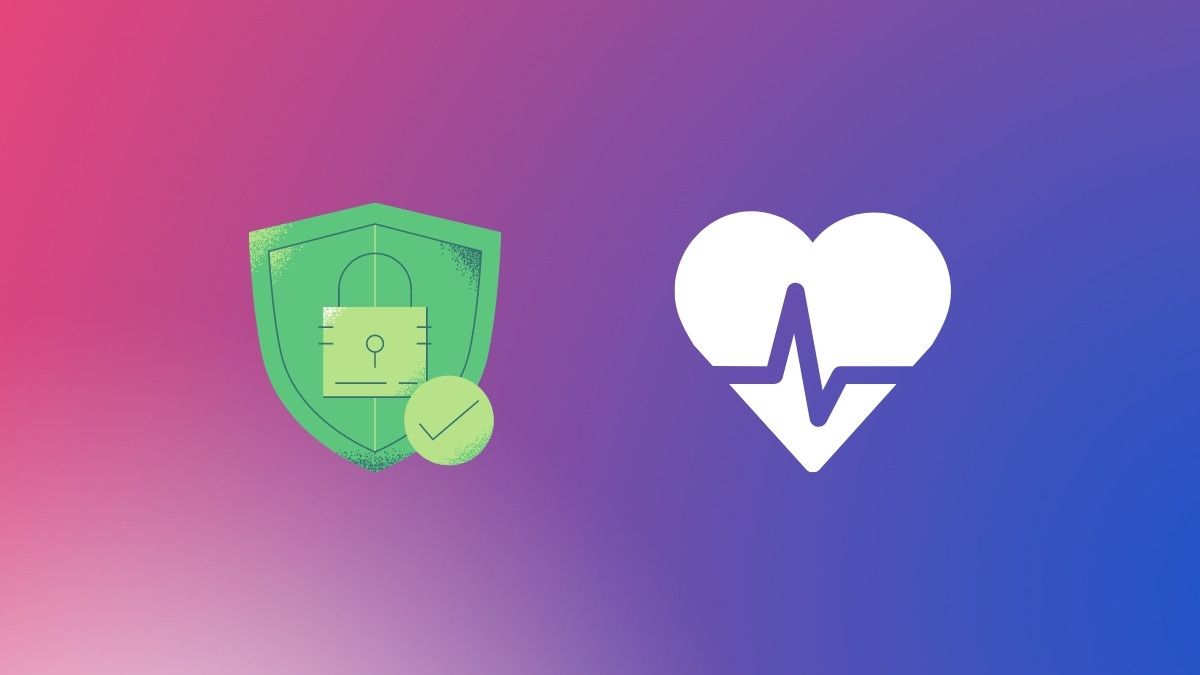Ransomware is omnipresent. And healthcare is one of the most affected sectors with ransomware attacks, which is a big concern.
While data extraction and selling it off on the dark web is one part of the problem, disruption of healthcare services by ransomware makes it a matter of life and death.
Considering that the ransomware attacks on healthcare services are rapidly increasing, it is important you know more about it, how it works, and what can be done about ransomware targeting medical institutions.
Ransomware Attack on Healthcare Services Is Critical
When it comes to your personal computer or a business, you have the choice to restore your data from a backup and move on.
But for healthcare services, any kind of disruption could result in the death of a patient.
Medical details or reports help doctors decide the next phase of treatment for any health issue. If a ransomware attack locks the data and makes it inaccessible, there will be drastic implications for healthcare services.
And not just life-threatening disruptions: personal health data is a sensitive matter as well.
When a ransomware attack leads to data extraction, all sensitive health information related to a patient is potentially exposed and put up for sale on the dark web.
While an individual can file a case on the hospital or network responsible for the leak, the data exposed makes you an easy target for a variety of malicious attacks.
Why Are Ransomware Attacks on the Rise?
Cyberattackers are always looking for opportunities and the Covid-19 pandemic gave them plenty.
Healthcare services are often overwhelmed, especially after the global pandemic.
Hence, ransomware campaigns get the chance to extract an enormous amount of data while having the potential to make millions by extortion. Humans are more health-conscious than ever, so it will only get better for hackers looking for more opportunities.
Why Can't Healthcare Defend Effectively?
The healthcare industry can utilize funds to defend itself with the latest cybersecurity tools.
So, what is the catch here?
Unlike some other industries, healthcare services cannot just stop what they do and take a moment to upgrade or improve their systems. In either case, many institutions do not even have enough time for regular security consultations, especially during the pandemic.
Unfortunately, improving and securing their network is the least of their concern amid climbing patient stats. Instead, they are focused on spending more resources to expand their services and make them more effective to the masses affected.
The healthcare industry has too much on its plate to handle—which is why they don't have their best standards in place for security.
High-Profile Healthcare Incidents and What Affected Them
Grupo Fleury, a healthcare giant, was affected by REvil ransomware. They're one of the biggest medical diagnostics companies in Brazil. And they had to take their systems offline, which affected their online medical exam reports and the ability to schedule lab tests.
In fact, REvil ransomware was involved in most of the high-profile healthcare disruptions.
In another instance, JBS, the world's largest beef producer, was also affected by the REvil ransomware where they ended up paying $11 million to get some of the files back.
Ryuk is another notorious ransomware involved in various attacks on hospitals and local governments. While it may not have affected any healthcare giant, it's thought to be the second biggest ransomware campaign after REvil.
It's not just limited to these either; there are several varieties of ransomware out in the wild. While some of them may have had minimal impact on healthcare, others have proved to be fatal, and in some cases took the health network systems offline for days.
All things considered, it is safe to assume that these malicious actors do not care about anything but money. Their priorities mean they target services that can give them the maximum amount of money (or data) in the form of ransom.
How Can Healthcare Services Protect Against Cyberattacks?
While it is true that the healthcare industry is facing many challenges at the moment, it is important to know what can be done to minimize the impact of damage when ransomware hits—or to prevent it. Here are a few things that can be done to improve the state of security for healthcare services.
1. Acknowledge the Security Risks
Ransomware attacks can prove to be fatal; every scale of healthcare networks should realize the fact.
Only then they can move forward implementing any other measures to prevent being a victim of ransomware attacks.
2. Educate and Train Staff
Humans are often the weakest links that attackers exploit.
So the first layer of defense should be proactive employees who are aware of basic cybersecurity practices to ensure nothing gets easily compromised.
Of course, the medical staff is not responsible for securing the network and the system, but if they do know what to watch out for, it makes things easy to manage the rest.
3. Security Partnerships
Healthcare service networks should partner with security firms, which eliminates the need for setting up a huge in-house security team managing everything.
With a cybersecurity firm on their side, they will be equipped to defend against most attacks and can also have consultations to improve their system.
4. In-House Monitoring
Along with the help of cybersecurity firms to apply the best practices, an in-house security team is necessary to complement it.
This should enhance the level of security implemented to prevent ransomware attacks.
5. A Quick Response Plan
Even with all security measures in place, having the ability to recover from damage or a ransomware attack is important.
Hospitals and medical networks should consult with cybersecurity experts to prepare for worse service disruptions.
With a backup plan to quickly restore service, the healthcare network can minimize the ransom needed to stop leaking the affected data and also earn the confidence of patients when they need it the most.
Healthcare Services Need to Gear Up
Ransomware attacks were a problem almost a decade back and will continue to be so. The attacks constantly evolve, which is why medical services should focus on improving their security measures as soon as possible. Because healthcare is a critical network that cannot afford disruptions.


